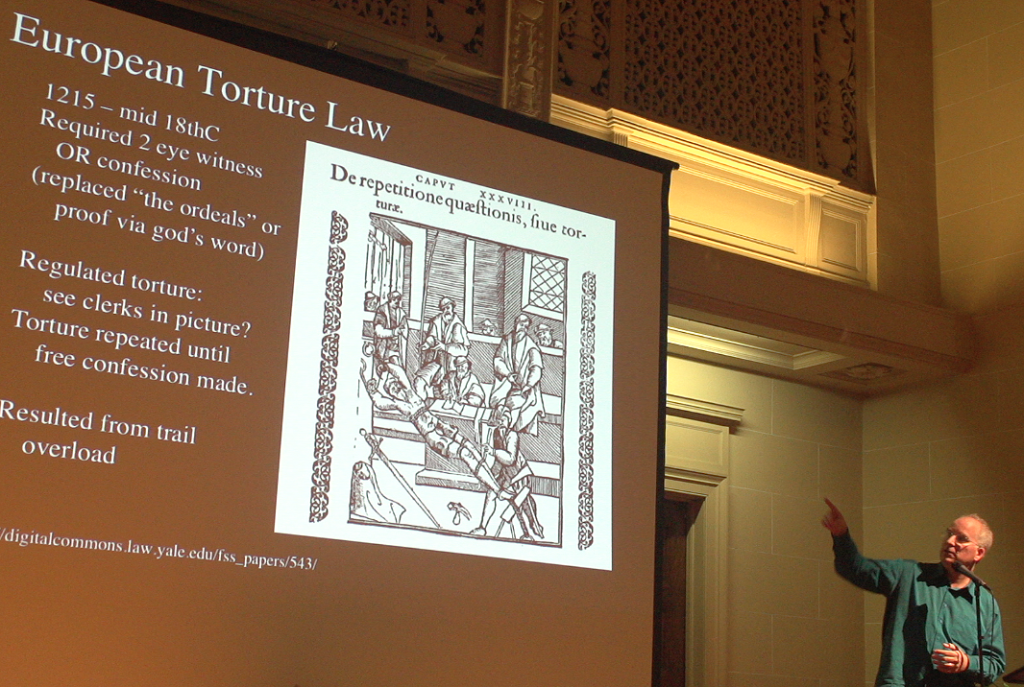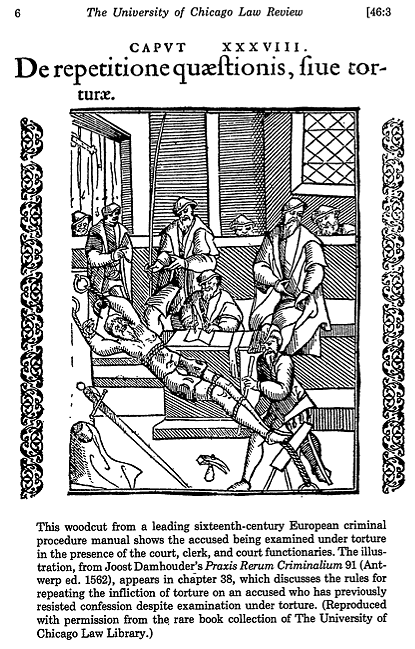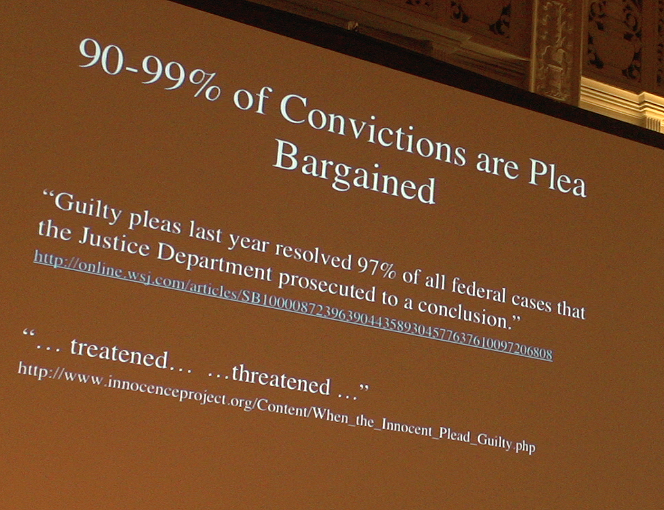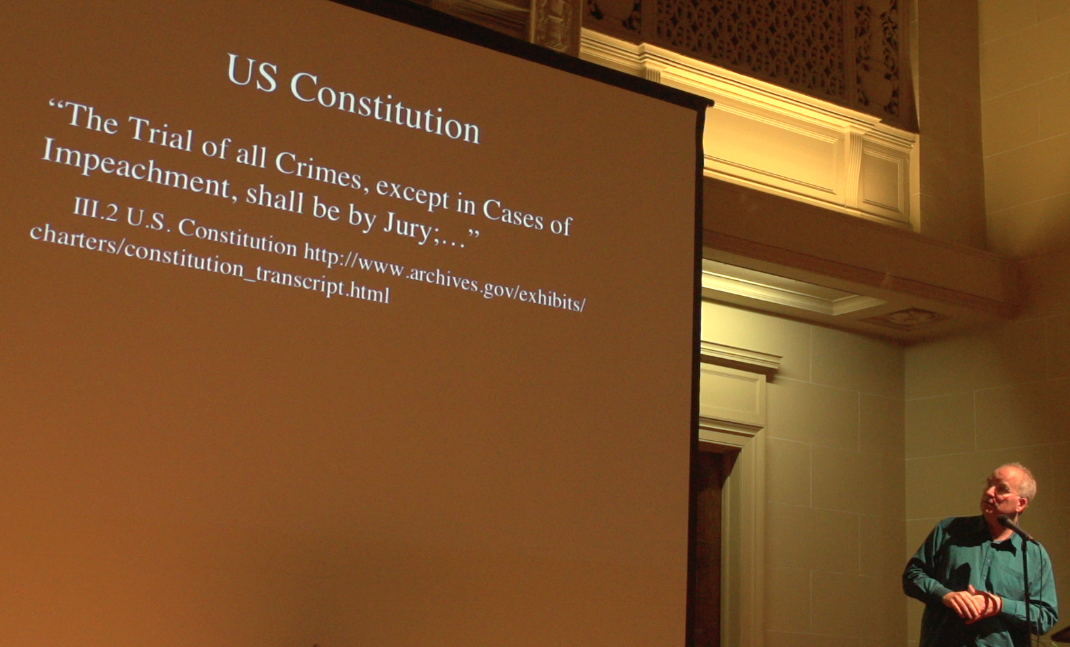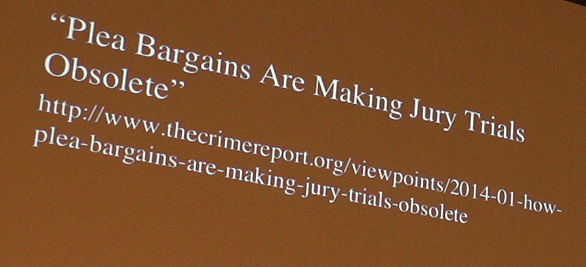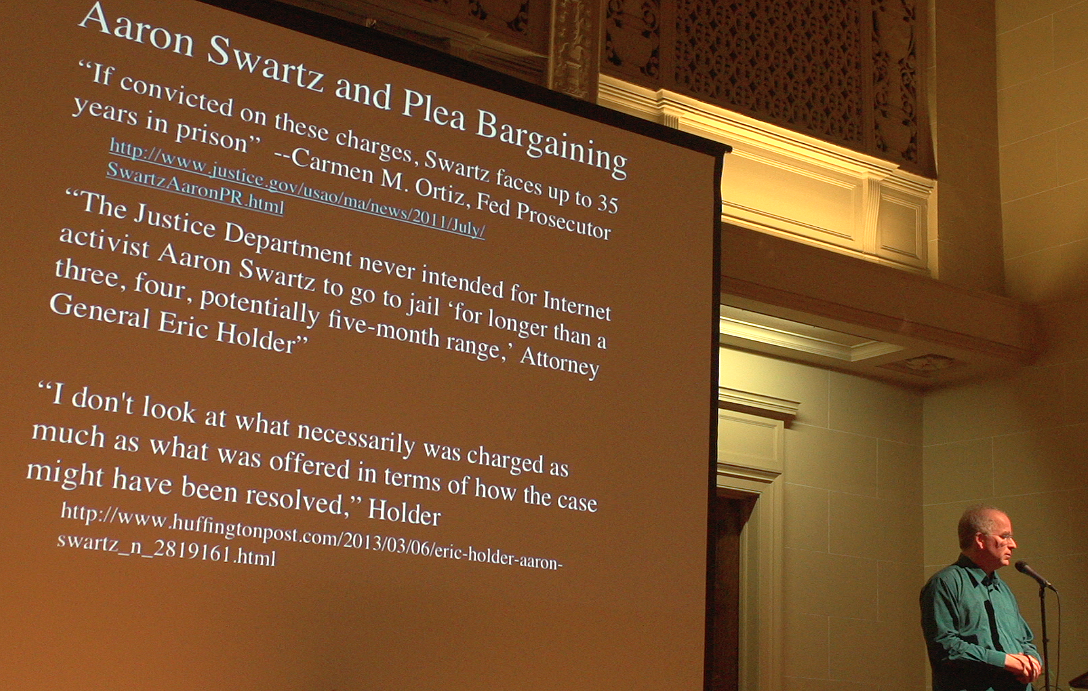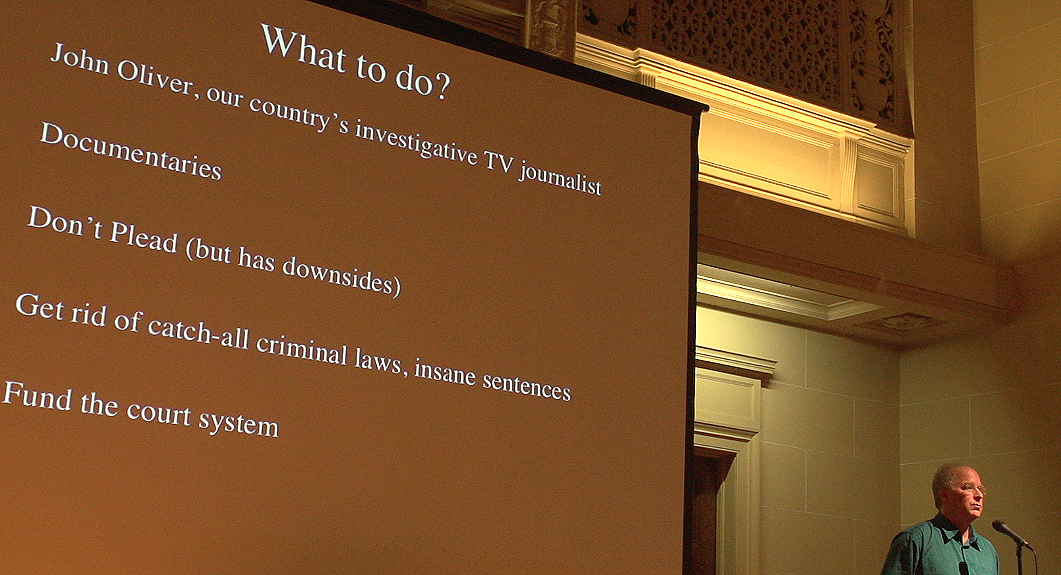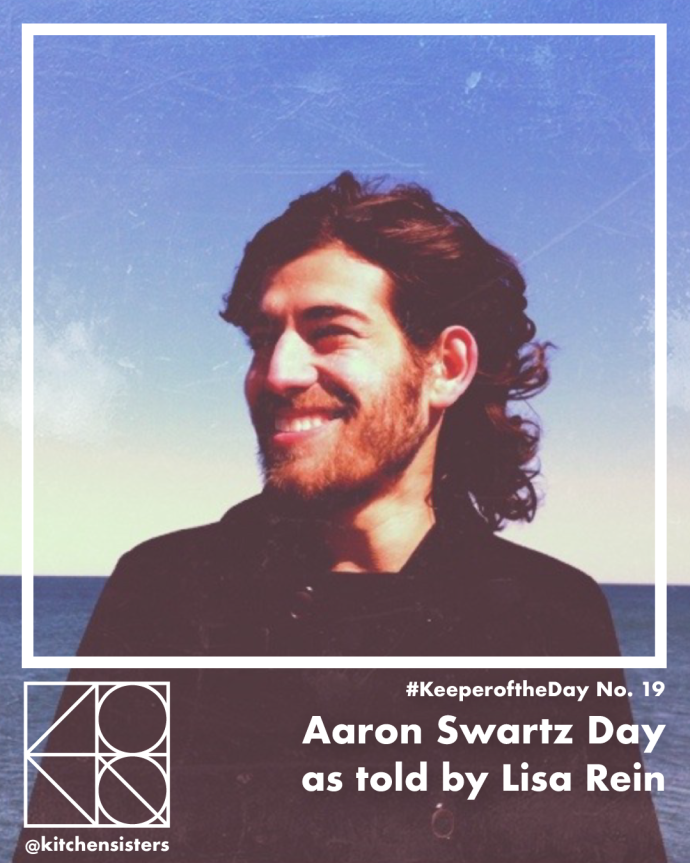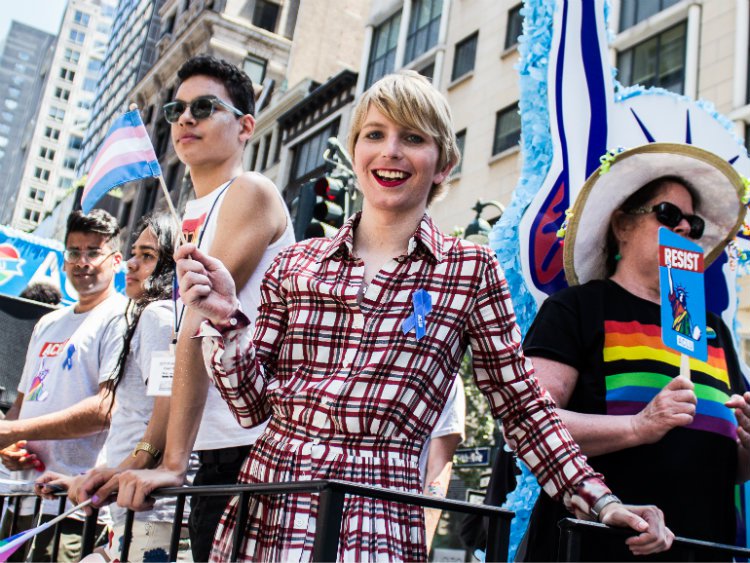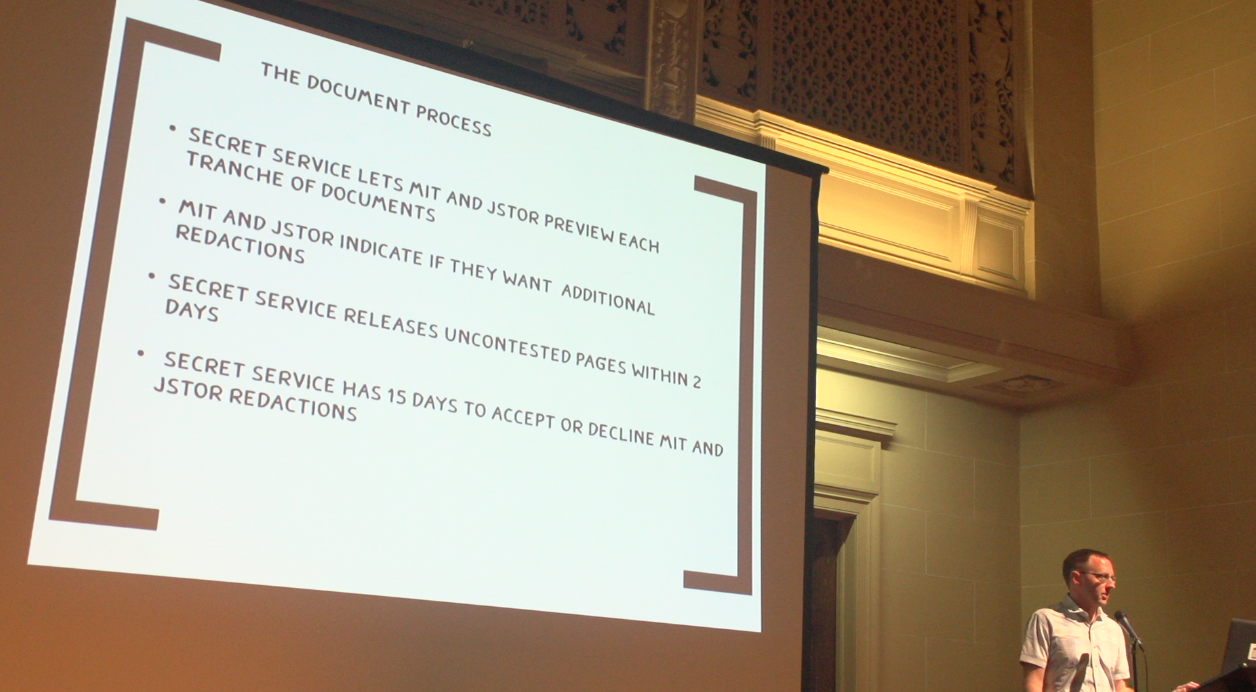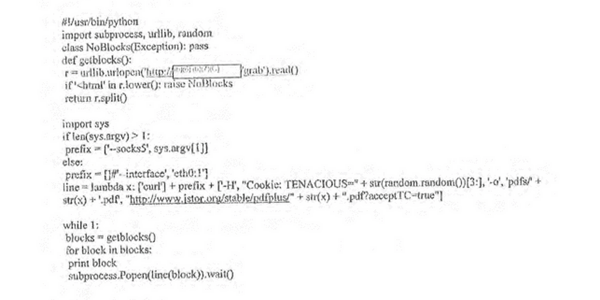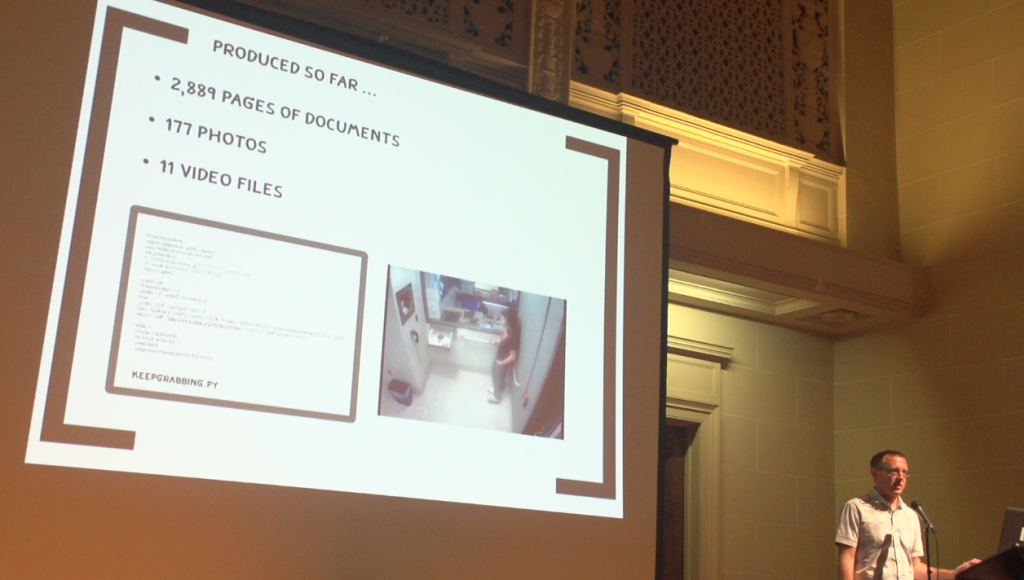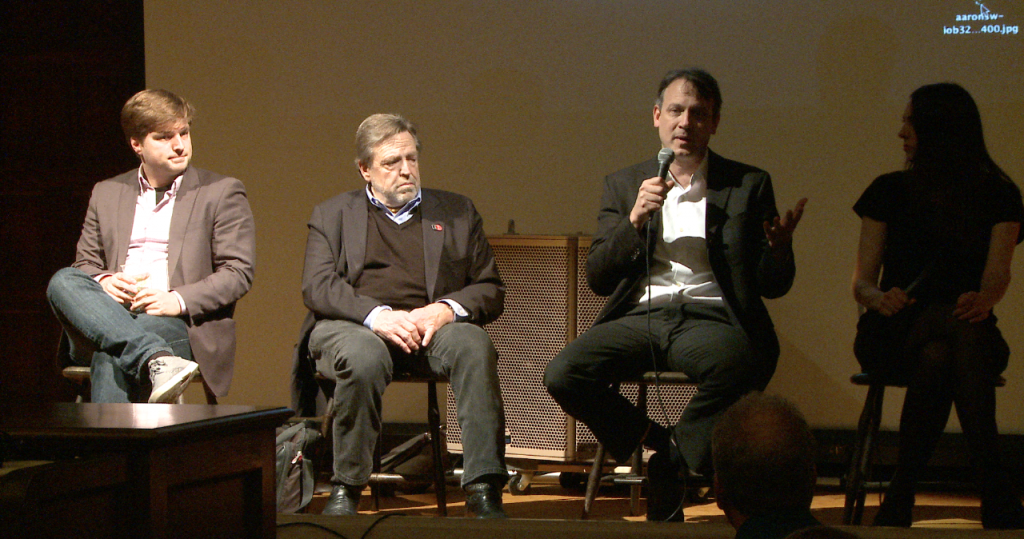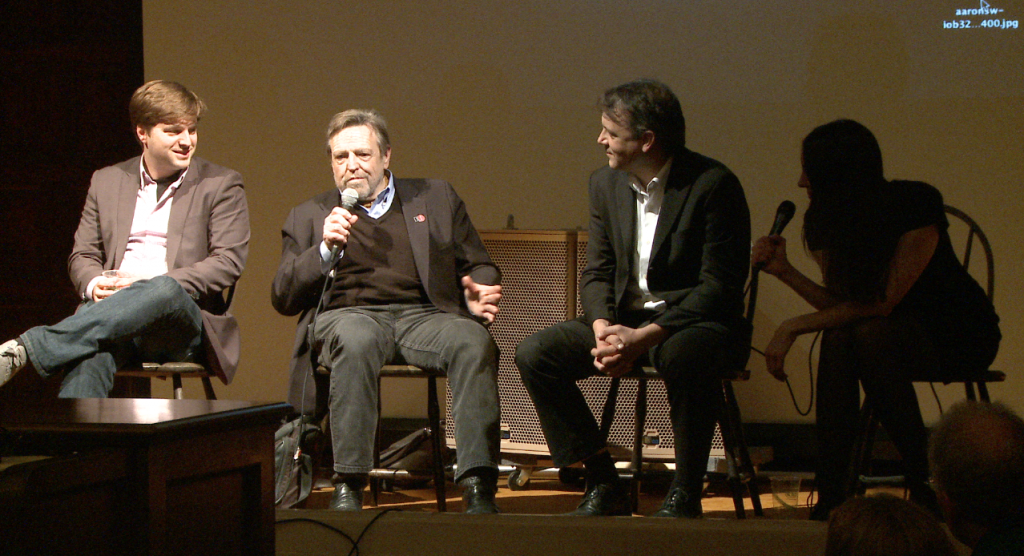Special Thanks to Amnesty International UK, who graciously provided me with a production script while preparing this verbatim transcript.
Host Anna Bacciarelli: Okay so, today’s episode is a bit different. You’re about to hear the story of the world’s most notorious whistleblowers, from her perspective. But you won’t hear her voice. You can’t. This woman isn’t allowed to talk to us because right now she’s in a high security military prison. She serving 35 years for the biggest leak of military information in U.S. history. She’s just 28 years old, but she’s already endured months in military confinement, and is due to spend her adult life, in prison. Her name is Chelsea Manning.
Let’s rewind to 2009 for a second. Chelsea, or as she was then known, Private Bradley Manning, was serving in the U.S. Army in Iraq as a military analyst. Disturbed by some of the actions of U.S. forces and their allies, Chelsea made a decision that would have huge consequences. It would see her imprisoned, isolated, and sacrificing decades of her future. She blew the whistle.
Today, Chelsea will tell you about who she is as a person, what she’s been through, and what her life is like now.
You’re listening to “In Their Own Words,” a podcast series from Amnesty International that aims to get behind the headlines and hear from iconic human rights activists first hand. Since Chelsea’s in military prison, barred from recording with us, actress Michelle Hendley is lending Chelsea her voice for this episode.
I consider my home to be in the D.C. suburbs of Maryland—that’s Potomac, Rockville, Bethesda, and Silver Spring. But, Crescent, Oklahoma is the town that I lived in when I was very young.
Crescent is a very small town—probably hovering either just above or below a thousand people for the last thirty or so years. Right down the middle of it, there is about a mile or so long Main Street with a few old original Victorian era buildings – either occupied by businesses or abandoned—on either side of it. The rest of the town is—and has been for as long as I can remember—mostly just streets with small houses or trailers. There are also a lot of churches—and I do mean a lot—I wouldn’t dare try and give you an estimate as to the number.
The people of Crescent are often very friendly. Most of the people that lived there when I was growing up had been there for most of their lives. I would say that it was not uncommon for there to be kids – and sometimes even adults—who had never left the state of Oklahoma. It’s really just another one of those stereotypical “everybody knows everybody else”—kind of towns that crisscross the whole mid-western portion of the United States—the portions that people—like myself, sometimes—call the “flyover” territory between the coasts.
My life was pretty rough. We lived in a small two-story house about three or so miles northwest of the center of Crescent. For about half of my time there, I lived with both my parents and my sister. After my sister graduated school in the mid-90s, she moved out—coming back occasionally to live for short periods of time. My father traveled a lot— mostly business trips for the international company he worked for. So, for a lot of my childhood—I spent time either with my sister or my mother. Unfortunately, both my parents drank heavily—and they could both get erratic and abusive. My sister helped me with that a lot though. She was a great role model for me at a difficult time.
I didn’t have a lot of options and opportunities for interaction with people growing up—so I naturally gravitated to computers because they were available to me when my mother was drunk, or my father was away, or when my sister wasn’t at the house. I think my father allowed me on the computers as a replacement for him. So, I used them as a kind of babysitter and parent—something to do without another person available.
By 1997—when I was nine and ten years old—I was exploring the internet a lot more, and began to hard code my own websites and put up useless information and facts on them. This was around about the time that I started using IRC chat rooms and began to communicate with other people on the Internet for the first time as well—I was driven by a combination of curiosity and loneliness more than anything else.
I remember not having anyone available to help me with my feelings. Like, when I was about eight, I confessed to a school counselor that I didn’t know why I wanted to play with the girls, or play games like hopscotch or… whatever. I felt lonely and strange and I needed support. But, she didn’t know what to do or say other than something along the lines of “boys are different than girls” and “girls do these things while boys do these other things.” It was like there was nothing in-between.
I didn’t understand what was going on at all. I didn’t have words to describe it. I just remember crying a lot and feeling weird. I felt like a freak.
Other kids would pick up on things that I didn’t quite understand. They would tease me a lot. “Hey, girly boy.” “You’re so faggy.” “You talk like a girl.” “You walk like a little girl.” “You cry a lot.” “You’re so gay.” It was a constant reminder of how different I was, and how little I understood the way people perceived me.
I spent a lot of time trying to get into my sister’s room. There was an arms race with locks. First she installed a hook and latch to keep me from opening the door. But, I would just get a stick to lift it up. She raised it, so I just got a bigger stick. Then she put on a simple lock—so I learned how to pick it. Then I remember dad put an actual door lock on—and I struggled for weeks to pick that lock. Eventually, though I figured out how to get in.
There wasn’t a whole lot to it, really. I would just play with her old toys—like Barbie dolls from the 1980s, and played with her clothing and stuff. I remember how neat and tidy she kept the room, and I wanted to be able to decorate my own room like she did. It was a very typical setup for a teenager in the early 1990s. She had a Rubik’s cube and a lava lamp and black and white polka dot sheets. I played in her acid-washed jeans and leather jacket.
By the time I was about fifteen I was in a spiral of denial. I was struggling a lot. So, I would choose to ignore it. But, I couldn’t ignore it. I would spend weeks ignoring these feelings—and then splurge on them. I lived in Southwest Wales in the U.K. back then, and I would buy makeup and girl’s clothes at a thrift store—sneaking around like a kid trying to buy cigarettes or alcohol underage. I would wear the stuff for a bit and then throw it into a trash bag and throw it in a dumpster down the street in the orange glow of the street lights on misty nights. Then I would repeat the cycle a few weeks later.
My inner thoughts were just unhealthy—internalized repeats of the taunts and bad advice from earlier in my life. You’re a freak. Nobody loves you. You’re such a girly weirdo. Man up. These were tough times for me, certainly.
I started talking to my friends before I moved to Wales from Oklahoma. I was mostly just asking questions like—is it normal for me to feel like I am a girl, or that I feel attracted to guys? Does anyone else feel compelled to wear girls’ clothing on occasions? But, it would end in disaster for me. People would be shocked by the questions—and I would suffer the consequences of my honesty in the rumors and slander that I would hear in school in the days following. I would deny everything and go into hiding for a couple of weeks until everybody forgot.
So, it turns out that these reactions would keep me in the closet for a very long time—especially for people who were the closest to me. But, when I was more anonymous—online, or far away from home in a city or while traveling on the train or a bus—then, I felt more comfortable to be honest, and to explore my identity.
I could be anyone I wanted to be online. The rules of the world didn’t seem to apply. In that era you identified yourself as a handle and your “ASL” – age, sex, and location. You didn’t have to be honest. I could be 16, female, and from Houston, Texas—or I could be 24, male, and from London, England. It required a lot of imagination—and a discipline for creating consistency if you were trying to be convincing to an online crowd. I was more myself than I could ever be “IRL”—in real life—as it was described online.
I was running away from the world that I lived in and experienced every day. I often felt like a stranger, or like an observer in my daily life. Sitting in my room, at night, illuminated by the light of the monitor in the dark I felt like I could type my innermost thoughts and feelings to people that I didn’t know, in a completely made up universe. It was a universe where you could be anyone that you ever wanted to be. It was both a fascinating and liberating experience for me growing up.
Although there wasn’t a huge trans community presence on the internet yet—during the early 2000s searching the term “transgender” would still get you a lot of pornography sites—but there was a thriving gay community which I was able to identify with and feel at home talking to. I made a lot of friends online. These were people who I knew very intimately even without knowing their names or what they looked like. The early internet was a very powerful anonymizer.
The first time I passed as a woman in public was while I was on leave from my deployment to Iraq, in 2010. I was dressed in a casual gray business suit jacket and skirt with a white blouse, black tights and a faded purple coat—it was really cold outside – and business shoes. I just kind of wandered about in public. I went to coffee shops and book stores and just tried to blend in as a bored woman looking for something interesting to do.
And, I was amazed at how much it worked, and how human and normal that it felt for me. I didn’t have the confidence before, and never would have done such a thing before I deployed to the combat zone of Iraq. But, I felt that it went pretty amazing. I was very disappointed to have to leave.
After leaving the U.K. in 2005, I moved in with my father and his new wife at the time. I was starting to explore my sexuality like a normal teenager should. But, his wife really didn’t like me and we had many disputes, and she didn’t like the fact that I even existed. After she called the police on me, I left the house and didn’t really have anywhere to go. So, I borrowed my father’s small red pickup truck and wandered around the Midwest for a few months and settled in Chicago for the summer.
It was a very annoying experience for me. I had no resources available to me. Volunteer homeless shelters were very anti-gay and anti-trans and required you to attend prayer ceremonies so I avoided those. I ended up sleeping in the truck a lot.
Every other night I would wake up with a flashlight in my face. I would squint at a police officer or a sheriff’s deputy with the red and blue flashing lights of a police car behind them.
Sometimes they would start yelling at me, pulling me out of the car. They would yell things like “Don’t move freak!” or “Give me a reason to shoot you, scumbag!” I would sometimes sit in handcuffs behind me on the curb of a street, or the dewy grass of a drainage ditch and get questioned on whether I had any warrants out for my arrest, or if I had drugs, or if I was soliciting for prostitution, or—whatever… I was just a street kid to them. But, after every time of harassment – whether minutes or hours – they would let me go. I expected to go to jail for something eventually, but I didn’t. Unfortunately, it’s a typical experience for many queer and trans youth even today.
I was really starting to struggle with my gender identity in the spring of 2007—and I even started seeing a therapist to talk about it, but I never had the courage to talk to her about my struggle. I was very lonely and afraid.
The war in Iraq was entering the troop “surge” that summer, and it was on television every night. I started to wonder about whether or not I could make a difference if the war kept spiraling out of control. I felt like my country needed me, and so I started asking my father about how to enlist in the military. He recommended I talk to a Navy or Air Force recruiter—but I wasn’t interested in joining either the Navy or the Air Force.
But, when I came home from work at night and watched the evening news, I saw all of these soldiers running around Baghdad and Basra, Iraq, and I felt that more ground forces were what the military really needed. I also felt that maybe the Army would “man” me up, so to speak, by instilling certain expectations on me so that I would be more masculine. So, I started talking to an Army recruiter and signed up. After saying some quick and emotional goodbyes to my family, I officially enlisted in the Army on the first day of October 2007, and reported to basic training the next morning.
I hoped that I could help to bring as many of the soldiers that were sent to Iraq and Afghanistan home, and to protect the civilians that were stuck living in these countries at the time. I felt that maybe if I did my job really well, I could really maximize our ability to know and understand insurgencies and conducting counterinsurgency strategies to speed things up. I was pretty hopeful that we could still make a difference there.
During the first week of training, one of the drill sergeants who inventoried my personal belongings made comments about my phone. It was a bold, fuchsia tone of hot pink that I loved. It never occurred to me not to bring it with me. It was pretty humiliating for me among the other recruits for a couple of days before training went on as normal.
My role as an all-source intelligence analyst was to take all of the various types of information—what might sometimes get called “raw intelligence”—that get gathered from different sources—or “disciplines”—such as interrogation reports, or observation reports, or intercepted communications, or satellite imagery, and to look at each different type and combine them together to produce reports or— all too often – slide shows.
While I was deployed I worked between 12 to 14 hours a day every day of the week—without any full days off. I also worked the night shift most of the time I was in Iraq, this was when most of the logistics, training and combat operations would happen, so it would be busy with a lot of pressure on us throughout the shift. There would often be forty to a hundred e-mails for me to go through each night—very intense and high stakes.
My time off was short, but I would often have trouble sleeping—especially with the sun beaming outside and the constant roar of generators and people passing by my trailer. I often spent a lot of my time online with my laptop—when I could get a decent internet connection, of course. I also listened to a lot of music. I didn’t talk to very many people after a while. I was really starting to struggle with the weight of people dying around me every day, and trying to fit into this projected persona of being a “man.” I was very anxious and often depressed.
I was inundated with all these numbers and reports and coordinates and names and pictures! It became overwhelming after a while. At some point, the work that I did stopped feeling like an abstract and intellectual chore, and began to become very real. These were real people living in real places. When we made mistakes planning operations, innocent people died. When we failed to see the small scale and the big picture as being connected, then our operations wouldn’t flow very well and innocent people would get caught up in detention for weeks or years because of a minor mistake that we made.
It often became a burden for me when we made mistakes or overlooked things like the Iraqi government detaining people under false pretenses, and torturing their citizens because they wanted to make an example. A part of me still takes their suffering personally.
Audio: Voice of Amy Goodman on ‘Democracy Now’ from an April 6th 2010 news bulletin:
“The US Military has confirmed the authenticity of newly released video showing US forces indiscriminately firing on Iraqi civilians.
On Monday the website WikiLeaks.org posted footage taken from a US military helicopter in July 2007 as it killed 12 people and wounded 2 children. The voices on the tape appear to believe their targets are carrying weapons, but the footage unmistakably shows some of the victims holding camera equipment. The dead included two employees of the Reuters news agency.
The pentagon has never publicly released the footage and has previously cleared those involved of wrong-doing. WikiLeaks says it managed to de-encrypt the tape after receiving it from a confidential source inside the military who wanted the story to be known.”
The consequences did feel very vague at the time. A discharge from the military sounded bad. A couple of years in prison sounded like a lifetime to me then. I expected the worst possible outcomes, but I didn’t have a strong or concrete sense of what that might have entailed.
In the abstract, I expected to be demonized and scrutinized. I expected to have every moment of my life examined for every single possible screw up that I’ve ever made, for every flaw and blemish that I have, and to have them be used against me in the court of public opinion. I was especially afraid that my gender identity would be used against me and other people who suffered like I did. Looking back, I think that my fears were based in reality.
Host Anna Bacciarelli: Chelsea was arrested by the US Army’s Criminal investigation team on May 27th 2010. Four days later, she was transferred to Camp Arifjan in Kuwait, where she would spend the next two months in solitary confinement.
I didn’t have any clue how I would be treated. At first everything seemed pretty normal. I was living with other people in a tent for a couple of days. It wasn’t until I was placed in maximum custody in what was basically this large metal cage within a tent that things really got bad. I expected to be treated like any other military prisoner or detainee would be—with dignity and respect, I had no reason to expect otherwise until I was transferred to the cage.
It was very hot, and it was dark in the tent. I remember you couldn’t tell if it was day or night outside. The facility operated 24/7 so only the meals would give you a hint as to what time it was. Eventually, it all became a blur. It’s difficult to for me to explain in any detail.
My memory of that time is very foggy. It’s all blended together as a really personal mess.
Being alone in that tent for hours on end without having any access to the outside world, I was left without any Idea of what was going on anywhere. I barely knew what month it was, or how long I had been there. I hadn’t started talking regularly to an attorney yet, and I didn’t even know what I was being charged with, exactly, either.
After a few weeks of living in this mental blur—I began to become entirely dependent on the staff that came to watch me and deliver food to me. They were my only connection to the outside world. But, they were not very talkative or reliable – at least in retrospect. My mind was very malleable and I was susceptible to believing all kinds of things because I didn’t have any other information. So—if a guard told me that I was going to be transferred to a ship off the coast of the horn of Africa, it made sense to me and I totally believed it was possible. I had no idea if the rest of the world knew where I was, or where I was going. Anything could have happened.
When I arrived at Marine Corps Base Quantico I was basically subjected to the same conditions that I was in Kuwait—except it was a permanent, air-conditioned building in Virginia. After being there for a couple of days I was allowed to have visitors which was very helpful to catching up on what had happened in the two or three months prior.
I lived in a small 8 by 6 feet Cell—roughly 2.5 by 2 meters. I was in a cell-block with a bunch of other cells that were all empty. I was not allowed to talk to anyone else – even though there wasn’t anybody near me. There were at least two Marines that watched me from behind a one-way reflective glass window at all times. I could see myself in the reflection of the window all day long. It was like a mirror right outside my cell.
I was not allowed to have anything in my cell that I wasn’t actually using. I would turn in most of my clothes at night. If I wanted to use the toilet, I had to ask for toilet paper, and I would have to return it when I was done. It was the same with toothbrushes, books, and sometimes even my glasses. I was not allowed to lie down or sleep during the duty day from 5 a.m. to 7 p.m. I was only allowed to sit up straight on my bed and literally stare at the wall for hours on end. I was sometimes allowed to watch television during the evening, but I had no control over what was on. Even then, Marines would monitor what I was watching, and would change the channel when anything like news or current events shows would come on.
The entire experience was such a surreal nightmare—it just seemed comical to me. I mean, it was just an incredibly crazy experience. It just seems that you have to have a sense of humor in these kinds of situations, or else you won’t be able to cope with painful or emotionally complicated situations.
I viewed the junior enlisted Marines who watched me and escorted me to the shower and to the recreation pen every day as just being young people who were doing their job. Most of the younger ones were very recently out of high school—some with as little as 3 to 6 months in the Marine Corps. I didn’t really interact with anyone else, so I never really developed an impression of the more senior people Involved.
The conditions in my cell were far beyond what is normally associated with solitary confinement. I needed permission to do anything in my cell. I was not allowed to move around the cell to exercise. I was not allowed to sit down with my back against the wall. I had no possessions inside the cell except when I was actually using something. I mean, I had a guard watch me brush my teeth every morning. The rules just seemed crazy.
Host Anna Bacciarelli: After more than three years of confinement, on the 21 August 2013, Private Chelsea Manning was sentenced to 35 years in military prison for passing classified documents to WikiLeaks during 2009 and 2010. During her trial, she was banned from presenting her evidence or the motives behind her actions, including her claim that she was acting in the public interest in exposing military abuses.
We asked Chelsea what happened in the moments after the verdict.
My legal team were pretty upset. We were escorted into a tiny side room immediately after the hearing closed. There were six of us in this small room with white walls and no furniture, with two of the armed security guards at the door waiting until the courtroom was cleared. There was this ominous silence except for a sniffle from one of the lawyers who started to cry. It seemed that everyone in the room was afraid to speak, so I just started speaking. I began telling them that they did a great job and worked very, very hard to get to this point—and that I couldn’t have asked for anything more from them.
“Why did I publicly announce ‘I am Chelsea Manning, I am female.’ the day after the sentence?” Well—for one—that’s who I am. It made sense to me to tell people who I am as soon as I was given the opportunity to do so, which was the day after the trial finished. I had been holding back on my announcement only because of the trial. I wanted to do it sooner, but the lawyers advised against it.
I felt honored to have a platform like national television available to me to make such an announcement. I felt proud of myself, for making the decision to be honest about who I am with everyone I know. I also felt excited, because I was getting nothing but an outpouring of support from the people who care about me.
Fort Leavenworth is a very large but not a very densely populated military base in the rolling hills along the Kansas banks of the Missouri River. It’s known for two things: the command and staff school that teaches military officers from all over the world; and, the military prison.
My initial impressions were based on the old “castle” prison building that has been closed down for several years now. I was expecting something from the movies. The reality is a lot simpler.
On my first night here, I was pretty much like “Okay, here I am.” I laid looking up in the dark of my cell and I stared at this dim buzzing night light on that ceiling, and I decided to just blend in and work toward settling in here.
Every single morning when I wake up, I walk over to the stainless steel toilet/sink in my cell and look into the eyes of the woman in the reflection in the mirror and say “okay, you can deal with this” to her. That’s the moment each morning that I motivate myself for the day—and only that day. I think it’s very important to break big long things like years down into discrete and manageable units that can easily be conquered.
In here, I’m just like anybody else. There’s nothing special about me in comparison to anyone else who lives here. I get treated like anyone else, and I only expect that I get treated like anyone else.
I wake up at around 4:30 a.m. each work day, or about 5:30 on weekends and holidays.
When I’m working, I drink coffee and eat breakfast at the prison cafeteria—when I’m not working, I avoid coffee and take a nap after breakfast —ha-ha. Work begins at about 7 a.m. and lasts until about 4 p.m., with about an hour and a half break for lunch in between.
When I get back to my cell in the evening, I go through the letters, cards, newspapers, and magazines from the day. I sometimes sort my laundry, get ready to either work out (with an emphasis on flexibility and cardio), or go to the Library to exchange books or type up letters or legal documents. I also make the most of my phone calls in the evening. I take a shower after working out, and go to bed—usually after reading a book or a magazine for an hour or so.
I work in a small woodwork team and we make a lot of high quality items. When we are lucky, we might make heirloom furniture for special orders—coffee-tables, beds, dressers, and cabinets. But we make a lot of standard stock items for bulk orders—usually odds and ends like award plaques, picture frames, picture boards, and triangular flag cases for folded U.S. flags. It’s a very fun job. Each team makes these items from start to finish—from rough lumber to the final finished product—so it feels like we’re making something out of nothing on our own. It’s not an assembly line.
It’s the dead heat of summer right now, so I can see the sky outside my window. It often swings wildly from an incredible clear azure hue of blue, to the ominous rolling of puffy white thunderstorm clouds from the distance, to the dark gray swirl of an intense Midwestern storm with flashes of bright white and blue lightning. There are fields of grass outside and between the fence that are very green and healthy—with a large variety of birds and little critters like squirrels and bugs running amok in them. I can also see the vast, rolling hills and thick patches of hardwood trees typical of northeastern Kansas and western Missouri.
In winter, everything turns a deep golden brown—the trees, the grass, the dirt, basically everything. As it begins to look really bland, nature throws in a light snow storm to the mix, and everything gets blanketed with a bright and very pure white! It’s never dull outside my window.
But sure, there are less exciting things like buildings and razor wire—but my mind doesn’t register them anymore.
I love doing cardio and flexibility exercises—and in spring, early summer, and early autumn I get to go outside and run. Right now, it’s the dead heat of summer and it’s just too hot and humid to run all that much—but as soon as it starts to cool off, I’ll get back into the rhythm.
I requested for medical treatment in August 2013—but I didn’t start treatment until February 2015. In December of 2014, I started wearing cosmetics—but that was really just a Band-Aid.
It’s a very strange reality that taking hormones has made clear to me. I can feel emotions much more immediately and deeply. Before, I used to just put my feelings in this little box in my head and say—I’ll deal with you later. But now, when I’m feeling sad, I cry. When I’m feeling angry, I need to take a step away and cool down for a minute. When I’m feeling happy, I laugh and get excited—and when I’m feeling lonely, I reach out to someone that I care about. Life is a much richer and fuller experience for me as a person.
Physically, my skin is softer and I guess that it’s a lot more sensitive because I can feel things that I never noticed before—like the way that the texture of fabrics might run against my skin, or the air circulating through my clothing, or the smooth and intense cold of a door handle. These feelings are very real to me—and I wouldn’t want to get rid of them.
I’m committed to learning as much as I can. I have a lot of little goals and objectives that I set for myself every day and every week, like writing this essay for a college course, or reading about this particular topic, or focusing on learning a particular style or technique of doing something. But, as a whole they all coalesce into the goal of enriching my knowledge, understanding, and connection with the world and people around me.
I have always enjoyed music. I love all different kinds of music – but I have a particular taste for what a lot people call “E.D.M.” or “electronic dance music.” But more fundamentally, I love any music that has a good beat – it’s just I prefer the creativity that digital and electronic music can offer us. I think it’s a fantastic medium to work with and listen to!
I get the most hope from the letters and cards that I receive from all kinds of unique people. I get letters from queer and trans kids a lot—which I think is amazing just because it’s a long forgotten medium to write a letter. When I first entered into confinement, I didn’t know where to write the return address or the sending address or where to put a stamp—so I can only imagine how important it must be for a kid to learn how to do something so unusual and unfamiliar in this digital era. It means a lot for me to get letters from these kids who feel so connected with me – they inspire me to keep going, and give me the most amount of hope.
I’ve actually imagined a few times what it would be like if I could travel back in time and speak to myself as a teenager. I know what she was feeling deep down inside. I know all the fears that she had, and all the vulnerabilities she was hiding. I would want to grab her by the hand and tell her that everything is going to be okay. I would tell her that there is nothing wrong with you, and that you are more loved and appreciated than you realize. I would tell her that she can be a happier and healthier person if she stays true to herself, like I have finally been able to figure out. I wouldn’t push her too far, I can’t even tell myself who she is—but I’d try to start that conversation, and guide her in the right direction. These were just the things that I so badly needed to hear from someone when I was younger—that we are all human, and can be loved and valued unconditionally.
Host Anna Bacciarelli: That was actress Michelle Hendley voicing the words of Chelsea Manning, for Amnesty’s “In Their Own Words.” Chelsea is still in Fort Leavenworth military prison, Kansas. It will be 2045 before she’s released, if she serves her full sentence. Amnesty is calling for Chelsea to be freed now. She was overcharged as a warning to others, while the abuses she reported have never been investigated.
In 2015, after she took the Army to court, Chelsea won the right to become the first military prisoner to access hormone treatment to transition in prison. But, she still can’t grow her hair, and is forced to adhere to military grooming standards for males. So, that’s her current battle.
Meanwhile, the US Army is looking at reassessing how trans people in the forces are treated. In no small part, thanks to Chelsea. So does she looking forward to, after she served her sentence?
I feel like I’ve been stored away for all this time without a voice or the ability to show my love and support to the folks who need it. I feel like there’s so much of a contribution to society that I could be making. I spend every day looking forward to the hope that one day I can give that a go.
Host: I’m Anna Bacciarelli. You’ve been listening to “In Their Own Words,” a podcast series from Amnesty International. Thanks to Michelle Hendley for reading, and of course, to Chelsea Manning, for sharing her story.
Please remember to subscribe to hear more stories from human rights activists around the world. Until next time.
